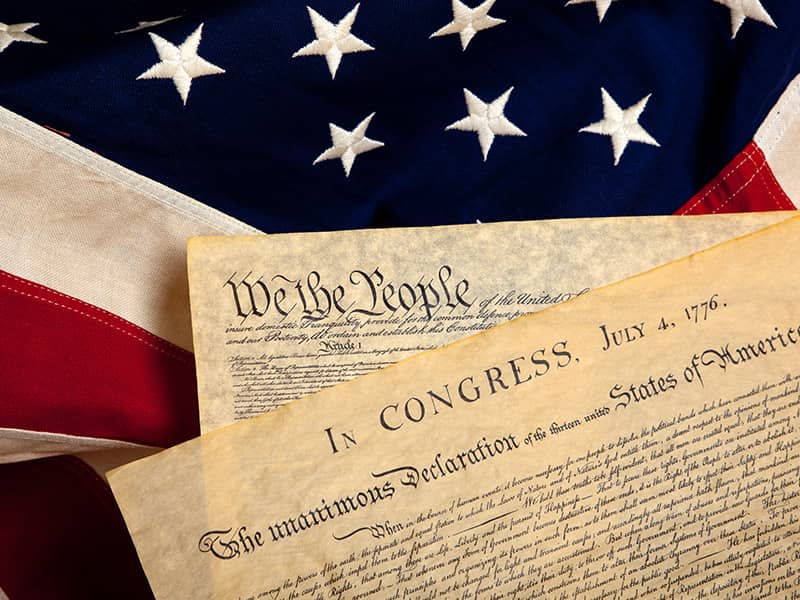This sounds sensible until you think about it hard. In fact, it is perfectly appropriate to force one's religious beliefs on others.
Let's say a Senator A opposes the Iraq war on practical grounds. He thinks it's a distraction from fighting Al Qaeda, which erodes our credibility overseas. He votes no on the war.
Senator B also opposes the war. He's a good Catholic and has read up on "just war" theory. He has concluded that this war is immoral because it was preemptive and could have been avoided through peaceful means. He votes no, too.
They both voted no, yet one did so for reasons practical while the other did so for reasons moral and theological. Is one an appropriate vote and the other not?
Slice it further. Let's say Senator C also voted against the war and, like Senator B, did so primarily for moral reasons. But in his case, Senator C, didn't depend on Catholic "just war" theory, but instead came to view the war as immoral after seeing "Fahrenheit 9/11." So Senators B and C both voted against it for moral reasons, in one case because of a secular movie and in another because of a religious document.
If that's the case, then everyone would be allowed to legislate his or her morality except those who come to it through their faith.
What people really mean when they say so-and-so is imposing his religious beliefs on me is that they don't happen to agree with those beliefs. Because most of these big issues are decided democratically, it is by definition impossible to impose one's religious views on someone else. Strike that. It's impossible to impose one's religious views any more than we impose any other kind of views. The candidate who wins 51 percent gets to impose his views on all those people who voted for the candidate who got 49 percent.
The Founding Fathers were quite clear that while they wanted separation of church and state, they also wanted religion to play a major role in shaping political morality. In his farewell address, George Washington said, "Reason and experience both forbid us to expect that national morality can prevail in exclusion of religious principle."
The left and right have both followed the advice of the Founding Fathers at different points in history. Abolitionism and the civil rights movement-two of the moral high points of our history-were driven by people attempting to impose their religious views on others. Prohibition and the right-to-life movement grew from this source as well.
There is, however, a problem with the way some religious conservatives approach the political sphere. The problem is not dogmatism, but laziness. Someone who casts the argument for a certain position only on the fact that their religion told them to is not really attempting to persuade. Even if one is motivated by faith, one still has to convince others using secular or, at least, broad-gauge moral arguments. It is fine for someone to oppose gay marriage because Leviticus frowns on homosexuality. It's neither appropriate nor smart to say Leviticus calls homosexuality an abomination and so should you. That is demanding that other people accept your religion. I'm not arguing that Kerry is obligated to force his views on his fellow citizens (though the Catholic Church certainly does believe that a Catholic politician is duty-bound to be against abortion). But I do believe it would be perfectly appropriate for him to legislate his morality.

